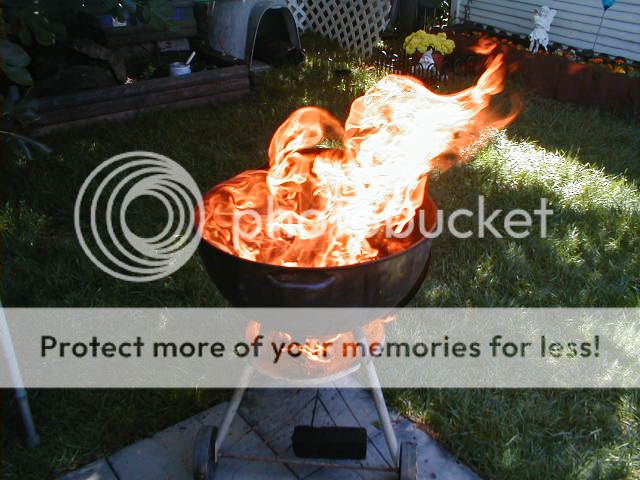hominamad
Knows what a fatty is.
Hi - was wondering if any scientific-minded brethren can help me answer this question.
I don't want to debate the merits of cooking on gas vs charcoal here, but my buddy and I are trying to figure out the science behind the heat produced by different cooking fuels.
When you read something such as "charcoal can get up to xxx degrees", what does this mean exactly? Is this the temperature of a briquette if you were able to stick a probe directly into it? I guess the crux of what I'm trying to understand, is what is the effect of simply starting with more coal? For instance, if I light my grill with 10 briquettes, it's nowhere near as hot as lighting it with 75. So, is heat a cumulative property? Or is this BTUs? I'm very confused here!
When people say things like "gas can get as hot as charcoal", how does the science change by just adding more charcoal? With a gas grill, there's a limit to how much heat I can get - I can just turn the knobs up to high, wait a certain amount of time, and reach some sort of max temp. But with a charcoal grill, I can always start with more coal, let the thing come up to full temp, and sear the crap out of something with more heat than any gas grill could.
Last night I cooked some steaks with a full chimney of briquettes, and the heat was so hot at first, that I couldn't even come near the grates with my utensils without using a pot holder. I never experienced anything like this with a gas grill. So how can anyone claim that gas gets as hot as charcoal? There seems to be too many variables involved.
Sorry if I'm rambling all over the place. It's hard to articulate exactly what I'm asking.
I don't want to debate the merits of cooking on gas vs charcoal here, but my buddy and I are trying to figure out the science behind the heat produced by different cooking fuels.
When you read something such as "charcoal can get up to xxx degrees", what does this mean exactly? Is this the temperature of a briquette if you were able to stick a probe directly into it? I guess the crux of what I'm trying to understand, is what is the effect of simply starting with more coal? For instance, if I light my grill with 10 briquettes, it's nowhere near as hot as lighting it with 75. So, is heat a cumulative property? Or is this BTUs? I'm very confused here!
When people say things like "gas can get as hot as charcoal", how does the science change by just adding more charcoal? With a gas grill, there's a limit to how much heat I can get - I can just turn the knobs up to high, wait a certain amount of time, and reach some sort of max temp. But with a charcoal grill, I can always start with more coal, let the thing come up to full temp, and sear the crap out of something with more heat than any gas grill could.
Last night I cooked some steaks with a full chimney of briquettes, and the heat was so hot at first, that I couldn't even come near the grates with my utensils without using a pot holder. I never experienced anything like this with a gas grill. So how can anyone claim that gas gets as hot as charcoal? There seems to be too many variables involved.
Sorry if I'm rambling all over the place. It's hard to articulate exactly what I'm asking.


